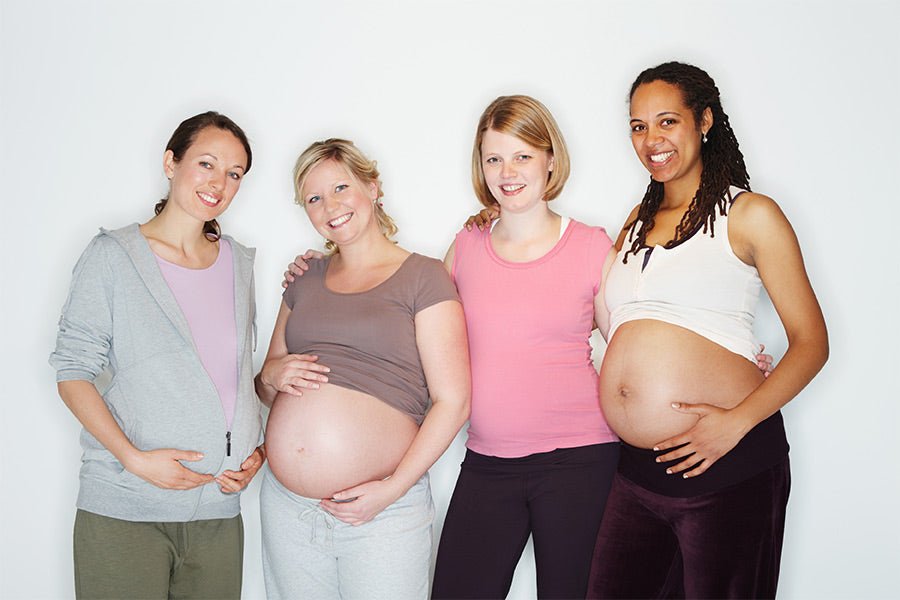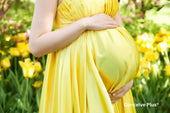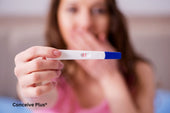Everything You Need to Know About Getting Pregnant After 40

Lots of people these days decide to delay parenthood and end up exploring topics like getting pregnant after 40. Maybe careers took center stage, or life circumstances just weren’t right until now. And that’s totally fine. But once you’re at this point, you might start worrying about fertility, bodily changes, and the challenges of starting later. The key is to realize that while things might be more complex, falling pregnant at 40 isn’t unrealistic. Some folks conceive naturally, whereas others turn to medical interventions.
Different reasons guide these decisions. One person might feel stable only after building a career. Another might have personal goals or want the right partnership before embarking on this path. Regardless of why, if you’re wondering “can you get pregnant at 40,” you’re not alone. A broader cultural acceptance of older motherhood has emerged, yet we still face plenty of questions about timing and well-being.
Fertility Changes Over Time
We all know fertility isn’t constant. For women, it peaks during our 20s and early 30s, then gradually declines. By the time you’re dealing with the chances of getting pregnant at 40, those eggs are not as plentiful or vibrant as they once were [1]. This doesn’t mean it’s hopeless. Just that the path may require more planning.
Your body was born with a set number of eggs. Each passing year reduces them until, by your 40s, they’re fewer and not always in top shape. That’s the reason it’s called a “biological clock.” If you’re actively trying, pay attention to anything that might boost fertility. If you want to know how to get pregnant at 40 fast, it might involve more than just random luck.
Lifestyle Influences on Conception
Lifestyle can either help or hinder pregnancy attempts. People often focus on the best way to get pregnant after 40, and there’s no single blueprint. But maintaining a balanced diet, regular exercise, and healthy sleep can nurture fertility. Understanding sleeping positions while pregnant is also important, as they can impact comfort and circulation during pregnancy. Your daily habits—smoking, excess caffeine, or stress—could get in the way.
Proper body weight matters, too. Being underweight may throw hormones out of whack, while being overweight can complicate ovulation. So if you’re aiming for how to get pregnant after 40 fast, a simple approach might start with reevaluating your nutrition. Fruits, veggies, lean proteins, and foods with beneficial fats might aid egg quality [2]. Of course, one should talk with a doctor about vitamins like folic acid or CoQ10, though it’s not a guaranteed miracle.
Emotional Nuances
Considering pregnancy after 40 can stir a lot of feelings. There’s excitement, but also anxiety or frustration. Maybe others around you conceive easily, so you might wonder if your time has passed. But everyone’s story is different. Do not feel compelled to compare.
For some, the question arises: getting pregnant at 37 how long does it take? The answer varies. It might be quick or it might take months. If it doesn’t happen right away, disappointment can set in. Try to remember that being older might add a few extra steps. Some cycles come and go with no success. That doesn’t automatically mean the outcome is negative, though. Plenty of folks conceive after repeated attempts [3].
Tracking Ovulation and Timing
When aiming for pregnancy, timing can be your best friend. If you’d like the best odds, figure out your ovulation. That typically falls somewhere around day 14 in a standard 28-day cycle, though bodies aren’t always textbook examples. Tools such as ovulation predictor kits can help you pinpoint the fertile days [4]. If your question is how to get pregnant at 40 fast, focusing on intercourse during those days is logical.
Many folks also try charting basal body temperature or paying attention to cervical mucus changes. Although these methods might not be perfect, they can provide an idea of the right times to try. Meanwhile, those searching for how to get pregnant at 43 fast might mix timing with medical advice pretty early in the process, given that every cycle counts.
Assisted Reproductive Options
If you’ve been trying a few months and not seeing success, consider consulting a specialist. For women thinking about getting pregnant at 39 tips, a fertility evaluation might reveal issues like blocked fallopian tubes or hormonal imbalances. Early detection could spare you months of uncertainty.
Treatments like IUI (intrauterine insemination) place sperm directly into the uterus near ovulation. It’s sometimes useful when sperm motility or timing is an issue. IVF (in-vitro fertilization) involves fertilizing eggs in a lab before implanting them into the uterus. IVF success rates do dip with age, yet it remains a viable path to pregnancy after 40 for many [5]. Egg donation is another consideration if the egg quality or quantity is severely impacted. It’s a personal decision that requires reflection, but it does open possibilities.
Risks and Realities
The chances of pregnancy at 40 or 41 might be overshadowed by concerns about miscarriages or genetic abnormalities. Indeed, older eggs are more prone to chromosomal complications, raising the probability of miscarriage or conditions like Down syndrome. Another reality is that maternal health concerns, like high blood pressure or gestational diabetes, appear more frequently among older mothers [6].
That said, countless individuals who explore the chances of getting pregnant after 40 do go on to carry healthy babies. The difference is that they might need closer monitoring, more prenatal checkups, or specialized screenings. Working with a healthcare provider who understands older maternal age can help lessen the worry. Each journey is different.
Goals and Expectations
Maybe you’re curious about your chances of getting pregnant at 35, maybe at 37, or perhaps you’ve arrived at can you get pregnant at 40. Regardless, adjusting expectations is a healthy approach. The body might not respond immediately. If you’re trying for a few months without luck, that doesn’t necessarily spell doom. Doctors usually advise seeking fertility advice if you’ve been trying for six months past age 40, because time plays a big role [7].
If your question revolves around the chances of getting pregnant at 41, the monthly likelihood might be lower than at 40, but it’s not zero. People do succeed. Support, patience, plus possible medical assistance are all important.
Intention and Hope
When searching for ways to raise the chances of getting pregnant at 40, one might focus on consistent effort, strategic timing, and supportive health habits. Reducing negative habits like smoking or heavy drinking is often a must, since they can compromise both egg health and overall hormone balance. Meanwhile, small add-ons like fertility-friendly lubricants or moderate exercise might give an extra edge.
In the end, each path to motherhood is personal. Some take a holistic approach, some embrace science and IVF, and others combine multiple avenues. People also differ on how they cope emotionally. If your mind is racing with questions such as getting pregnant at 37 or how to navigate diet changes, reaching out to professionals or support groups can lessen isolation [8].
The Bottom Line
Older motherhood is no longer a shocking idea. Yes, certain biological constraints exist, but individuals keep stepping into this territory with realistic positivity. For many, the idea of pregnancy after 40 is influenced by factors that weren’t present in their earlier years: financial stability, emotional maturity, or stable relationships. That might make the experience fulfilling despite the added complexity.
If you’re aiming for quick conception, then how to get pregnant at 40 fast or how to get pregnant after 40 fast might be top concerns. But approach it with balance and understanding. Consult doctors, track ovulation, consider potential fertility treatments if recommended, and nurture your overall well-being. There’s no magical formula guaranteeing success, but each step can raise your odds slightly [9].
So, keep an open mind. Fertility is a multifaceted area that demands patience, knowledge, and sometimes acceptance of interventions. If circumstances allow, meet with specialists early to assess your unique situation. The journey may not be straightforward. But many individuals reach the outcome they want, even at advanced ages.
FAQs
Is getting pregnant at 40 naturally achievable?
It’s definitely still possible. But the odds are lower than they were at younger ages. Some women conceive without fertility treatments, but others might need assistance.
How to improve the chances of getting pregnant at 40?
You might focus on nutrition, stress reduction, timing intercourse around ovulation, and possibly discussing supplement use with a doctor.
What about the chances of pregnancy at 40 if I’m trying for the first time?
Success rates vary. If no conception occurs after six months, consider connecting with a fertility specialist for an evaluation.
Is the process different if I’m thinking about getting pregnant at 37 how long does it take?
It can still take several months or longer. Individuals differ widely in how quickly they conceive. Some get pregnant in under six months, others might need more time or medical help.
Are there extra risks for pregnancy after 40?
Older mothers can face a higher likelihood of gestational diabetes, high blood pressure, and miscarriage. Extra medical monitoring is generally recommended.
Any advice on how to get pregnant after 40 fast?
Track ovulation carefully, maintain healthy eating and weight, reduce alcohol and smoking, and consider speaking with a healthcare professional early.
Citations
- Infertility Workup for the Women's Health Specialist: ACOG Committee Opinion, Number 781. (2019). Obstetrics and gynecology. Available at: https://pubmed.ncbi.nlm.nih.gov/31135764/
- Homan, G. F., Davies, M., & Norman, R. (2007). The impact of lifestyle factors on reproductive performance in the general population and those undergoing infertility treatment: a review. Human reproduction update. Available at: https://pubmed.ncbi.nlm.nih.gov/17208948/
- Practice Committee of the American Society for Reproductive Medicine (2015). Diagnostic evaluation of the infertile female: a committee opinion. Fertility and sterility. Available at: https://pubmed.ncbi.nlm.nih.gov/25936238/
- Sato, D., Ikarashi, K., Nakajima, F., & Fujimoto, T. (2024). Novel Methodology for Identifying the Occurrence of Ovulation by Estimating Core Body Temperature During Sleeping: Validity and Effectiveness Study. JMIR formative research. Available at: https://pmc.ncbi.nlm.nih.gov/articles/PMC11259765/
- Fritz, R., & Jindal, S. (2018). Reproductive aging and elective fertility preservation. Journal of ovarian research. Available at: https://pmc.ncbi.nlm.nih.gov/articles/PMC6087539/
- Practice bulletin no. 146: Management of late-term and postterm pregnancies. (2014). Obstetrics and gynecology. Available at: https://pubmed.ncbi.nlm.nih.gov/25050770/
- Baird, D. T., Collins, J., Egozcue, J., Evers, L. H., Gianaroli, L., Leridon, H., Sunde, A., Templeton, A., Van Steirteghem, A., Cohen, J., Crosignani, P. G., Devroey, P., Diedrich, K., Fauser, B. C., Fraser, L., Glasier, A., Liebaers, I., Mautone, G., Penney, G., Tarlatzis, B., … ESHRE Capri Workshop Group (2005). Fertility and ageing. Human reproduction update. Available at: https://pubmed.ncbi.nlm.nih.gov/15831503/
- Boivin, J., Bunting, L., Collins, J. A., & Nygren, K. G. (2007). International estimates of infertility prevalence and treatment-seeking: potential need and demand for infertility medical care. Human reproduction (Oxford, England). Available at: https://pubmed.ncbi.nlm.nih.gov/17376819/
- Fritz, R., & Jindal, S. (2018). Reproductive aging and elective fertility preservation. Journal of ovarian research. Available at: https://pubmed.ncbi.nlm.nih.gov/30098598/



















